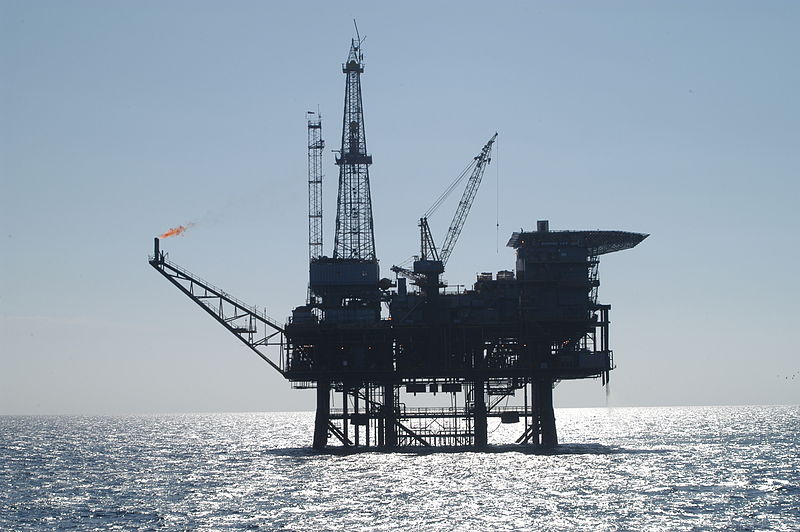The situation in Scotland with decarbonising is the same as in the rest of Europe: Net Zero Change. Although explicitly about Scotland, there are many good universal points in this article making it well worth reading.
Robin McAlpine is the director of the Scottish think and do tank Common Weal.
Cross-posted from Common Weal

Flickr – Creative Commons Attribution-Share Alike 2.0 Generic
In the debate about tackling the environmental crises we risk taking what is really quite simple and complicating it (like finding corporate work-arounds for insulating houses) and taking what is pretty complicated and pretending like it’s simple. Scotland’s relationship to the oil and gas sector is a very good example of the latter.
You probably know the story, or at least you probably think you know. Either you think that oil and gas extraction must end as quickly as is humanly possible or you think that we need cars and jobs so need to ‘get real’. These two views do not engage with each other constructively.
So is it a case of picking a side? That is really the problem; this isn’t one debate, it’s loads of them and you need to break it down carefully to find coherent answers (as far as we have coherent answers). The question of the new Cambo oilfield is inextricably entwined with all of this.
Let’s start with the corporate greenwash – that we need to keep pumping all the oil we can out of Scotland’s seabed because otherwise we’ll just have to import it, which it is claimed is worse. This is so trite and vapid as an argument it’s really quite insulting.
Scotland produces oil which is known as ‘Brent Crude’ – a particularly light and clean kind of oil. Light means that it produces lighter ‘fractions’ of oil-based products but not heavier ones. This means that Scotland (and the UK) is basically self-sufficient on petrol. We make much more than we use.
But we produce very little of the heavier fractions of fuel like diesel. Britain imports almost all of its diesel and will almost certainly continue to do so for as long as we need diesel. Likewise natural gas for heating – we will import most of that because we don’t really produce it. With other heavy oil-based products (especially things like bitumen for roads), we can’t even nearly be self-sufficient.
In fact if you trace the whole lifecycle of Scotland’s oil, it is likely that only 12 or 13 per cent of that which is produced will end up being used anywhere in the UK – over 70 per cent is exported in its crude form and nearly half of what’s left in processed form. So the idea that we need to ‘keep on pumping’ just to stand still is not even nearly true.
However, there are an equal number of problems with the ‘stop oil now’ position too. About 30 per cent of our refined oil is used for purposes other than fuel – plastics, medicines, fertiliser and so on. These all carry with them their own implications; for example, plastics don’t produce greenhouse gases if not burned but contribute to dangerous plastic pollution, fertilisers are doing serious damage to waterways but we’re wholly reliant on them…
Put as simply as it can be, ethylene is not propylene is not polyethylene is not polypropylene is not ethanol is not LPG is not gasoline is not kerosene is not aviation fuel is not diesel is not bitumen – and so on.
Each of these is made in different ways, with different applications, with different kinds of environmental impact, with different options for replacement and with different levels of current need. There isn’t a single sweep-of-the-hand way to make all this go away.
And then we have the economic impact. Here the numbers need to be treated with great caution as most emanate from the oil and gas industry itself – depending on how you look at it, different aspects of Scotland’s oil and gas can look very significant economically or really pretty insignificant.
But if where we are now is a complicated picture, where we need to get to is probably much more straightforward. We absolutely need to get to a place where we are no longer burning any oil and gas products whatsoever. We need to stop producing all short-life plastic and bluntly all but the very longest-lived plastic (such as buried pipework). Plastic is a pollutant that never, ever stops polluting.
As for other applications, again it is varied but not impossible to envisage where we need to get to. As far as possible we should want to move to biodegradable alternatives to almost all of our current uses. But with some uses, such as bitumen for roads, we are nowhere near a viable solution just now. We can wish it otherwise, but that won’t help.
Where does all of this leave us? First there is one fairly straightforward conclusion we can draw from the above; there is absolutely no responsible justification for opening up the Cambo oilfield. We already export heading for 90 per cent of our oil-based products so you don’t need a maths degree to note that producing even more than we do isn’t going to ‘offset’ anything, simply add to the world’s problems.
Cambo isn’t going anywhere; if we make an absolute pigs ear of transitioning to a low-carbon economy and find ourselves in need of petrochemicals for longer than we hoped then (a) start praying and (b) we can exploit the Cambo field if and when that happens. The headlong rush to Cambo right now is pure greed, not need.
This takes us to the second problem – industry simply does not want to make a transition to a post-carbon economy. It spends a lot of money blocking and hindering a transition – what is says in public is pure misinformation, what it does in private is lobby hard against reform.
And in the face of this, democracy and government seems pitifully weak. Look at the propaganda from the oil industry, look at the propaganda from government (very much including the Scottish Government) and play a game of spot the difference. You’ll struggle. Government parrots oil industry talking points.
What this means in effect is that we are doing next to nothing to find the kinds of solutions we need to find. We will need less natural gas immediately if we insulate houses properly. But at the current rate Scotland won’t have completed this task until well into the next millennium. The moves to adapt farming and so be less reliant on petrochemically-based fertilisers is negligible.
And when it comes to domestic transport, the transition to electric (and hydrogen) vehicles is purely wishful thinking. Charging infrastructure rolls out at a snail’s pace, the rest is reliant on you doing all the heavy lifting as a consumer.
But in Scotland there is an overwhelming indicator of what is wrong; the economy of the North East. It is now 20 years since talk began in earnest of building an alternative energy industry to compensate for declining oil and gas, but it largely remains talk.
In fact to hear politicians still saying that it ‘will’ be OK to end oil and gas ‘one day’ because a new economy for the North East is coming (again) is worryingly hollow given the past failures in this area.
This is at the heart of the question. The role of oil and gas in the modern world is not a single, simple one but an all-pervasive and complex one. That means that removing oil and gas from our economy needs multifaceted and properly-planned solutions which will take time to feed through.
Neither the Scottish Government nor the UK Government (much less a multilateral initiative like COP) are even nearly presenting credible, comprehensive plans for getting to a post-oil world. Without those we will fail to achieve change – the rest is just noise.
There is no justification for Cambo so let’s not even consider it. But if we don’t start planning properly for a post-oil world now, it won’t be possible. That’s about as simple as this whole story gets.
Robin McAlpine



Be the first to comment